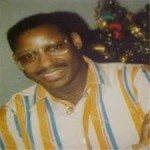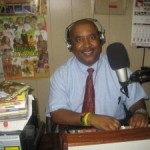BY HOWARD CAMPBELL—-


Hudson’s playlist is exclusively Jamaican. Mento artistes like Count Lasher and Lord Fly are heard alongside dancehall turks such as Nesbeth and Dexta Daps or neo-roots artists Chronixx and Jesse Royal.
There are also servngs of ska, rocksteady and classic reggae. He credits this variety for attracting a diverse listenership, something he did not have in his years at WNWK where he hosted The Clive Hudson Reggae Affair.
Hudson grew up in central and east Kingston, and attended Camperdown High School. Migrating to the United States in the mid-1970s, he enrolled at the New York School of Announcing and Speech.
After graduating in 1979, Hudson went to work at WNWK, one of the stations that exposed Jamaican and West Indian cultures to Americans at a time when they were ignored by mainstream media.
It was a period many consider the golden age of West Indian radio.

Some of Hudson’s colleagues at WNWK were giants in The Big Apple’s Jamaican and West Indian communities. They included Gil Bailey, Clinton Lindsay and Earl ‘Rootsman’ Chin.
Though Internet radio has allowed him and his contemporaries to reach different demographics, Hudson said technology has not helped broadcasting standards on some new West Indian radio stations.
“Radio in New York in the ‘80’s and ‘90’s was more professionally run to meet certain standards and was more effective in reaching the massive. There has been a bit of decline,” he stated.

You must log in to post a comment.